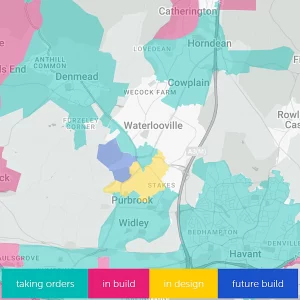Sponsored Links
UK ISP Entanet Praises Ofcom Ruling to Axe Website Blocking of Piracy Sites
Posted: 09th Aug, 2011 By: MarkJ
 Communications and networking provider Entanet has today praised last week's decision by Ofcom, which effectively axed the UK governments plan to force every broadband ISP in the country into blocking websites that are deemed by Rights Holders to facilitate internet copyright infringement (piracy).
Communications and networking provider Entanet has today praised last week's decision by Ofcom, which effectively axed the UK governments plan to force every broadband ISP in the country into blocking websites that are deemed by Rights Holders to facilitate internet copyright infringement (piracy).Ofcom ruled that the measures, which were a key part of the Digital Economy Act (DEA), would "as they stand ... not be effective". The outcome came just a few short days after the London High Court of Justice forced BT to use its child sexual abuse filter, Cleanfeed, to block access to a pirate website known as Newzbin (Newzbin2).
Entanet’s Head of Marketing, Darren Farnden, said:
"With the recent news of BT being forced by the High Court to block Newzbin2, we envisage many rights holders following suit. That is, of course, if they have the time, money and patience to take it this far. This is why this solution on its own is unworkable.
If a website needs blocking quickly, because it is hosting a sports game illegally for example, waiting for the court process is simply not quick enough. Why waste all that money when the site can easily up-sticks and host elsewhere?
Of course we should not forget that we have Ed Vaizey’s Voluntary Code of Practice for blocking access to websites to contend with next, which involves a fast-track legal process that avoids court cases. Hopefully the Ofcom report has however, proved that the options available to ISPs for blocking websites, at least for the time being, will never be 100% effective."
"With the recent news of BT being forced by the High Court to block Newzbin2, we envisage many rights holders following suit. That is, of course, if they have the time, money and patience to take it this far. This is why this solution on its own is unworkable.
If a website needs blocking quickly, because it is hosting a sports game illegally for example, waiting for the court process is simply not quick enough. Why waste all that money when the site can easily up-sticks and host elsewhere?
Of course we should not forget that we have Ed Vaizey’s Voluntary Code of Practice for blocking access to websites to contend with next, which involves a fast-track legal process that avoids court cases. Hopefully the Ofcom report has however, proved that the options available to ISPs for blocking websites, at least for the time being, will never be 100% effective."
It's worth remembering that the UK government's efforts to design a new Voluntary Code of Practice for website blocking (i.e. "Plan B") originally came about because the regulator, Ofcom, had hinted that its review would not directly support their intended solution.
Meanwhile the court's decision against BT was a complicated one and very much specific to that particular providers setup and its existing use of Cleanfeed. Most of the big mainstream providers also use similar technology and will now need to follow suit. Still, as Entanet suggests, doing this for every website you want blocked would be very tedious.
Sadly there are still many roadblocks with the voluntary solution too, not least with the ever present burden of cost (who pays?) and the need for an impartial judge to asses each case properly. The government, ISPs and Rights Holders will meet again this month to discuss the latest proposals.
Some sources indicate that the final code could be watered down to exclude public networks (e.g. libraries but not hotel wi-fi) and ensure that only the most deliberately infringing sites (i.e. not YouTube or Google) are targeted.
Search ISP News
Search ISP Listings
Search ISP Reviews
Latest UK ISP News








Cheap BIG ISPs for 100Mbps+
150,000+ Customers | View More ISPs
Cheapest ISPs for 100Mbps+
Modest Availability | View More ISPs
Latest UK ISP News
Helpful ISP Guides and Tips
Sponsored Links
The Top 15 Category Tags
- FTTP (6800)
- BT (3881)
- Politics (3075)
- Business (2767)
- Openreach (2663)
- Building Digital UK (2512)
- Mobile Broadband (2475)
- FTTC (2142)
- Statistics (2128)
- 4G (2092)
- Virgin Media (2024)
- Ofcom Regulation (1779)
- 5G (1732)
- Fibre Optic (1604)
- Wireless Internet (1595)
Sponsored
Copyright © 1999 to Present - ISPreview.co.uk - All Rights Reserved - Terms , Privacy and Cookie Policy , Links , Website Rules






























